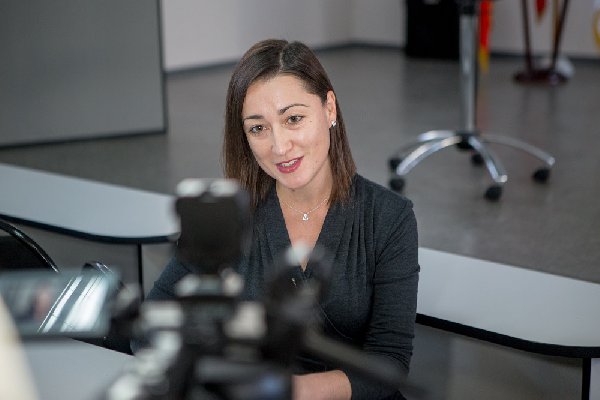UN Career story. UN Russian translation service translator, RUDN graduate revealed the secrets of the profession
In January, translator of the UN Russian translation service, RUDN graduate, Natalia Kobleva spoke to the young linguists and diplomats. The expert gave a lecture «Language Careers at the United Nations».
In January, translator of the UN Russian translation service, RUDN graduate, Natalia Kobleva spoke to the young linguists and diplomats.
The expert gave a lecture «Language Careers at the United Nations», told about the history of the UN foundation, UN aims and goals and about the UN Russian translation service.
The expert mentioned that it is very important to be proficient in mother language besides foreign languages that include English, French, Spanish and Chinese. Translator is a specialist not only in linguistics and philology, he or she also needs knowledge of culture, politics and economic situation and in other life spheres.
The graduate shared the secrets of trade, told about different special translation resources.
In 2003, Natalia Kobleva graduated RUDN IFL (Linguistics). She knows English, Spanish and German. She taught English in IFL, worked in the international company AECOM. Nowadays she is a translator in the UN Russian translation service.
Peoples‘ Friendship University of Russia (RUDN) has been awarded the All-Russian prize “Time for Innovations” for its patented development ‘Digital Pre-University Faculty’, which allows you to study Russian from anywhere in the world.
The aaniversary medal to the 100th anniversary of V.F. Stanis is awarded to RUDN current and ex-employees and students for: significant contribution to the university development; long-standing commitment to maintaining ties with the university; fruitful cooperation of Russian and foreign organizations, scientists and public figures with the university.
RUDN University employees’ work and contribution to the development of the university cannot go unappreciated. The Ministry of Science and Higher Education of Russia recognizes talented university employees and present them with various departmental and state awards.
